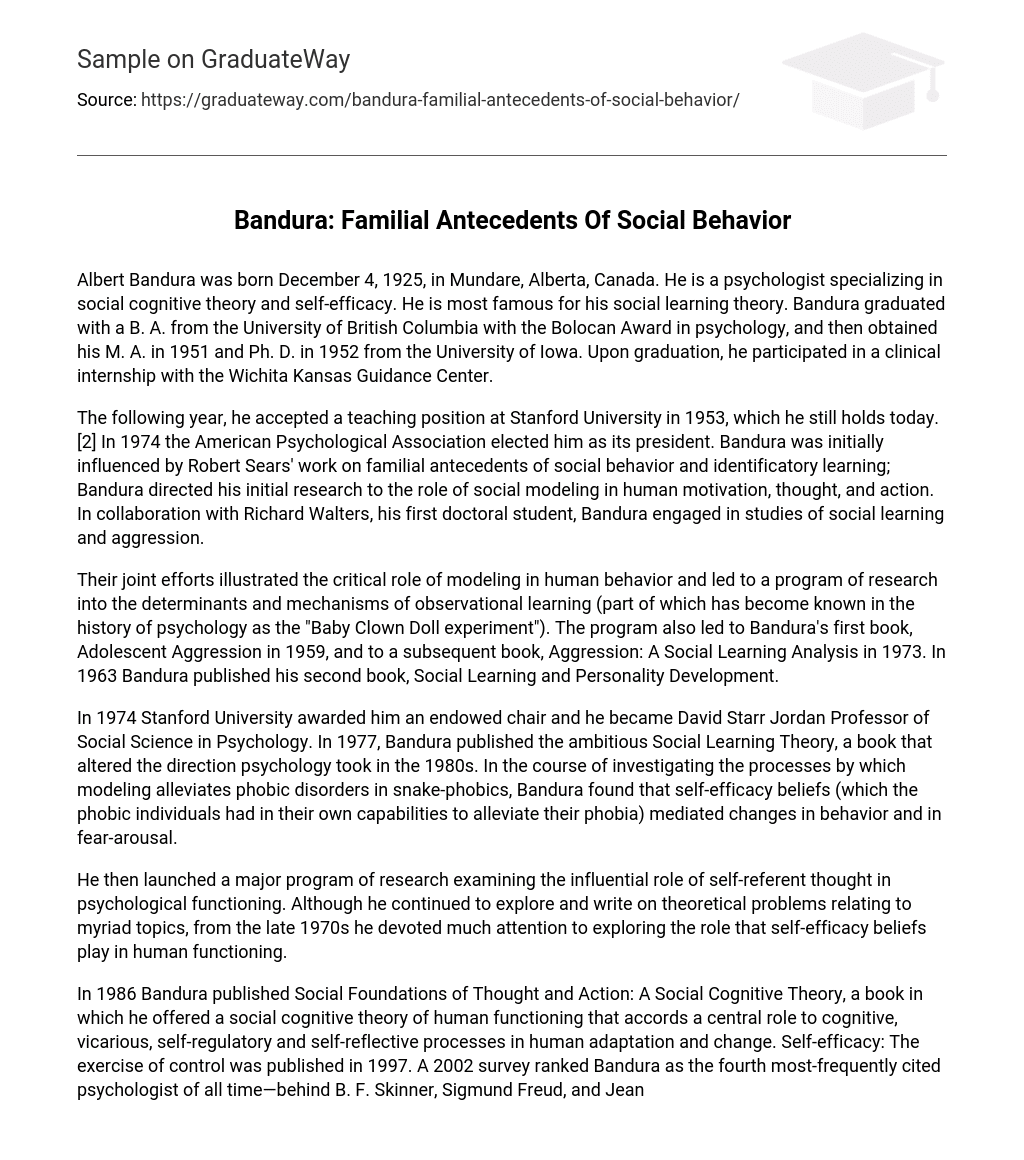Albert Bandura, born on December 4, 1925, in Mundare, Alberta, Canada, is a psychologist known for his expertise in social cognitive theory and self-efficacy. He gained recognition for his social learning theory and received the Bolocan Award in psychology during his undergraduate studies at the University of British Columbia. Following this, he pursued higher education at the University of Iowa where he earned an M.A. degree in 1951 followed by a Ph.D. degree in 1952. After completing his studies, he underwent a clinical internship at the Wichita Kansas Guidance Center.
Bandura started teaching at Stanford University in 1953 and has remained there until now. In 1974, he was chosen as the president of the American Psychological Association. His initial studies were influenced by Robert Sears’ research on familial antecedents of social behavior and identificatory learning. Initially, Bandura’s research concentrated on the impact of social modeling on human motivation, thought, and action. Bandura worked together with Richard Walters, his first doctoral student, on research projects concerning social learning and aggression.
Their collaboration highlighted the importance of modeling in human behavior and initiated a research initiative on the factors and methods of observational learning (including the renowned “Baby Clown Doll experiment” in psychology’s history). This project also resulted in Bandura’s debut book, Adolescent Aggression, in 1959, followed by Aggression: A Social Learning Analysis in 1973. In 1963, Bandura published his second book, Social Learning and Personality Development.
In 1974, Stanford University awarded him an endowed chair and he became the David Starr Jordan Professor of Social Science in Psychology. Just three years after that, Bandura published a groundbreaking book titled Social Learning Theory, which had a major impact on psychology during the 1980s. While studying how modeling assists individuals with snake phobias, Bandura found that changes in behavior and fear-arousal were influenced by their self-efficacy beliefs, or their own belief in their ability to conquer their phobia.
Later on, he commenced a substantial research initiative to investigate the significant impact of self-referent thought on psychological functioning. While he still delved into various theoretical issues and wrote about them, starting in the late 1970s he focused extensively on studying the role of self-efficacy beliefs in human functioning.
Bandura’s book titled Social Foundations of Thought and Action: A Social Cognitive Theory, published in 1986, presents a theory that emphasizes cognitive, vicarious, self-regulatory, and self-reflective processes in human adaptation and change. In 1997, he published Self-efficacy: The exercise of control. According to a survey conducted in 2002, Bandura is ranked as the fourth most-cited psychologist of all time, following B. F. Skinner, Sigmund Freud, and Jean Piaget, and he is also the most cited psychologist who is still alive.





